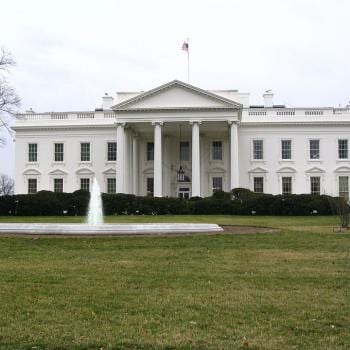Last May marked the five-hundred year anniversary of the Protestant Reformation. To commemorate this major upheaval in Europeans’ worldview, one German church unveiled BlessU-2, a robot ¨priest¨ created to spark debate about the future of the church. ¨We wanted people to consider if it is possible to be blessed by a machine,¨ said church spokesman Stephen Krebs.
While the idea of a robot priest initially seems cute and comical, for me it does serve to provoke debate. Technological change is moving at breakneck speed. It is predicted that self-driving cars will dominate the roads within a decade; we rely on robots for everything from warfare to medicine; artificial intelligence programs can trade stocks, read legal documents, report the news and even compose music. Whether a robot priest could confer a blessing is, for me, beside the point. The more fundamental question has to do with what it means to be human and how we as humans will treat one another in this rapidly changing world.
In 2011, when I first learned of the ¨technological singularity,¨ (a hypothetical future when intelligent machines will have greater optimizing capacity than humans), I reacted with a horror that was mostly existential. As a Christian, while I was raised to honor all creation, I saw human beings as made in the image and likeness of God. To me, the drive to create these superintelligent machines – essentially, gods made in our image – seemed like nothing less than idolatry. And, the very possibility of their existence – the idea that what we think of as a soul could be created purely materially – threw my whole worldview into question.
As time has gone by, my existential fears have been somewhat abated, but many questions remain. What would I do if I encountered a robot that claimed to be conscious? Would I treat its claim as serious? Would I acknowledge it as a human person with a soul, dignity and rights? Or would I dismiss it as ¨just a machine¨ and subject it to all sorts of abuse in a way that I would never allow myself to do to a fellow human?
Imagining a world filled with intelligent machines, it is easy to picture all sorts of utopias and dystopias. Some techno-optimists envision a world where, with machines essentially doing all our work for us, we will be free to live a life of total leisure. Liberated from the need to work to survive, distributing wealth through a universal basic income, we will spend our time singing in choirs, creating beautiful art, and building a more just society where all humans can flourish as they see fit.
However, others are skeptical that, given the structure of our current economic systems, such an imagined heaven-on-earth could ever come into being. And, if it did, would it be ethical for us to live in that way? In the absence of the need to work, how would we keep ourselves from turning our society into a feel-good, meaningless brave new world where all are doped on soma? More to the point, given how disrespectfully we currently treat the people who grow our food for well under minimum wage and make our clothes in sweatshops across the sea, how much worse would we treat our robot slaves? What if they actually did have a kind of consciousness? Moreover, would our mistreatment of them worsen our own moral character, leading us to have less empathy and concern for one another?
Today is Respect Life Sunday. As Catholics who see life as a seamless garment that must be cherished, we are called to resist a widespread culture of death, to connect the dots between abortion, euthanasia, xenophobia, racism, capital punishment, war, poverty, and environmental destruction, to create a world where life is honored and the most vulnerable among us – the elderly, the unborn, the migrant, the disabled, the impoverished, the homeless, ostracized – are treated with concern and mercy. Even in a world where robots do not yet claim to be sentient, we fail to create this culture of life. We still allow people to starve; we still hold undocumented migrants in detention centers; abortion, though undoubtedly painful and not the preferred option for many who undergo it, is viewed by many as a morally acceptable means of avoiding parenthood. Given our current failure to defeat a culture of death, my question is directed toward the not-so-distant future. Would the rise of sentient machines exacerbate our anti-life tendencies, or might they actually lessen them?
Among the people most enthusiastic about artificial intelligence, I have encountered some who display a deep concern for sentient beings that can feel pain. Thus, there is a certain amount of overlap between some transhumanists (who want to improve human flourishing by radically changing our physical capacities through technology), animal rights activists (who want to end the suffering of animals, who have nervous systems and are sentient, on factory farms) and people seeking to give direct charity to the world’s poorest. Among this group of techno-enthusiasts (who usually tend to be atheist or agnostic) I have occasionally encountered pockets of people who question abortion on the same basis: if a fetus is a living being that can feel pain, how are we justified in subjecting one to the physical pain of abortion? In some ways, those who would recognize the sentience of intelligent machines may urge wider social concern for all sentient beings.
Nevertheless, I see a serious problem in this movement’s emphasis on sentience – a term that, like ¨intelligence,¨ is slippery and not clearly defined – as being the criterion for whether or not a living being deserves rights, especially if those rights do not extend far beyond a protection from pain. If ¨sentience¨ is the basis for respect, then where would we place the rights of an elderly person with Alzheimer’s, particularly if her care was costly to those around her? Where would we place the rights of someone with such severe developmental disabilities that he cannot easily communicate his thoughts or feelings at all?
My overall hunch is that the advent of intelligent machines – and the general illusion of human control over nature that seems to come with it – will not do much to advance our respect for the fragility of life. I fear that robot servants will make us more narcissistic and less empathic toward one another; I worry that the transhumanist drive toward radical human enhancement will worsen socioeconomic inequality and increase the already-existing disdain for those who would just rather not participate in the acquisitive consumer culture that shows no signs of going away; I sense that ultimately, our desire for absolute technological dominance over nature is an act of hubris worthy of ancient Greek tragedy – a pride fated to be met with a fall.
But, I am not sure, and a small part of me insists on hoping to be proven wrong. We are living in times of great change, and, as painful and undesireable as some of the changes are, they also offer opportunities. Should they come to exist, these machines could actually help us gain a new understanding of what it means to be human, to increase our empathy for those who suffer, and use our newfound freedom to create a more just world where, by expanding our definition of what ¨life¨ is, we realize that all life needs to be respected. Ultimately, the choice will be ours. What kind of world do we actually want?















